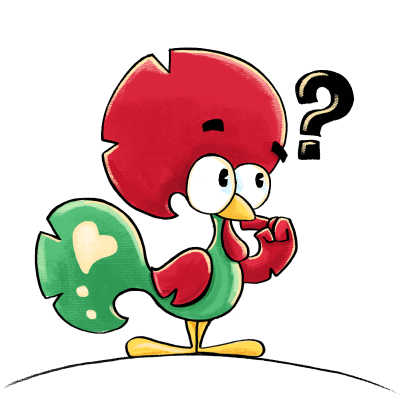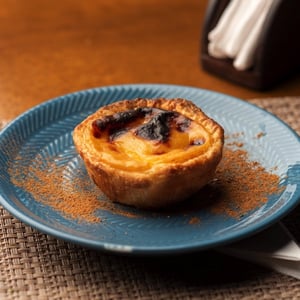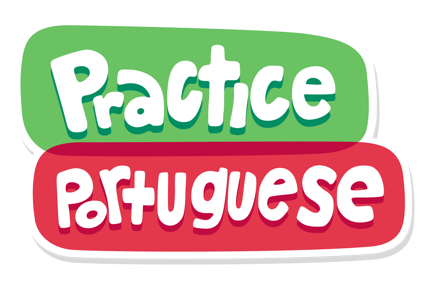
| Answers and More Info – Find by Portugal News Issue Date:
Jan 27 ⋅ Feb 3 ⋅ Feb 10 ⋅ Feb 18 ⋅ Feb 25 March 4 ⋅ March 11 ⋅ March 18 ⋅ March 25 April 1 ⋅ April 8 ⋅ April 15 ⋅ April 22 ⋅ April 29 May 6 ⋅ May 13 ⋅ May 20 ⋅ May 27 ⋅ June 3 ⋅ June 10 ⋅ June 17 |
Portuguese Verbs Word Search – Jan 27
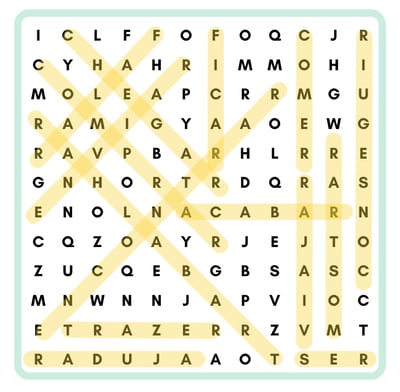
Did you find all 15 verbs? The hidden verbs were:
- acabarto end, finish ajudarto help chegarto arrive comerto eat comprarto buy conseguirto get, reach, succeed, be able to
- encontrarto find, meet, come across enviarto send falarto speak, to talk ficarto stay, be(located) , become
- mostrarto show serto be (permanent) trabalharto work trazerto bring viajarto travel
Join Practice Portuguese for full access to our European Portuguese learning platform, including Verbs resources, Shorties dialogues, Videos, and much more. Follow the path of Units to learn basic to advanced grammar (A1-B2), and master the expressions, vocabulary, and cultural tips you’ll need to live and travel in Portugal. More info
Pastel de Nata Challenge – Feb 3
Solution and audio here: O Delicioso Pastel de Nata
Join Practice Portuguese for full access to our European Portuguese learning platform, including Verbs resources, Shorties dialogues, Videos, and much more. Follow the path of Units to learn basic to advanced grammar (A1-B2), and master the expressions, vocabulary, and cultural tips you’ll need to live and travel in Portugal. More info
Leonor and Pai – Feb 10
Listen to the full audio for this dialogue here: Palavras Opostas
The Portuguese words were:
paifather longolong (sing.,masc.) caroexpensive(sing.,masc.) erradowrong(sing.,masc.) o diaday a noitenight Claro que simYes of course NãoNo altotall(sing.,masc.) baixashort(sing.,fem.) magraskinny (sing.,fem.) os elefanteselephants gordofat (sing.,masc.) Faz-me mais perguntasAsk me more questions Deixa-me pensarLet me think a lojastore fechadaclosed (sing.,fem.) abertaopen (sing.,fem.) vaziaempty (sing.,fem.) cheiafull (sing.,fem.) poucasfew (fem.) a criançachild o adultoadult jovemyoung (sing.) velhoold (sing.,masc.) O quê?What? mais velhoolder
You may have noticed that many (but not all) of these words are adjectives. Adjectives have to match the noun they modify in gender and number, so that’s why you see different variations of the same word. For example, the masculine forms for the Portuguese word for “tall” are alto (singular) and altos (plural). Similarly, the feminine forms are alta (singular) and altas (plural). You can read more about adjectives here: Introduction to Portuguese Adjectives
Small Talk – Feb 18
Here are some of our favourite European Portuguese phrases for keeping the conversation flowing.
Comments:
Que bomThat's good Que giroHow cool, How cute, How nice Que fofoHow cute Que penaToo bad, What a shame Que chatoHow boring
Wishing you well:
Parabéns!Congratulations! or Happy Birthday! Boa sorte!Good luck! Espero bem!I hope so!
Agreeing and disagreeing:
Está bemAll right, Okay, It’s fine Gosto muitoI like it a lot ConcordoI agree Não concordoI disagree Isso é mentiraThat's a lie
Small talk:
Muito prazerVery nice to meet you Já não a via há algum tempoI haven't seen you (sing.,formal,fem.) in a while Temos de pôr a conversa em diaWe need to catch up O tempo está muito bomThe weather is very nice
Filler words:
Pois éThat's right, So it is PoisYeah, well, right EntãoSo, then
Join Practice Portuguese to add these phrases (and thousands more!) to your Smart Review flash cards. 😉
Need more help making small talk in Portugal? Don’t worry, we have you covered:
- Small Talk dialogues | Greetings | Introducing Yourself | Basic Conversation | Blog Post: Olá! Tudo bem? …NOW what?
Prepositions – Feb 25
Here are the answers to the fill-in-the-blanks challenge:
- Eu gosto de caféI like coffee
- A salada é para ele, o peixe é para mimThe salad is for him, the fish is for me
- Ela vai à festaShe goes to the party – à is a contraction of the preposition ato and the definite article athe(sing.,fem.)
- Ela vai por aíShe goes through there
- Eu estou de fériasI am on vacation
- Sou de PortugalI am from Portugal
- Para onde vais?Where are you going?
- Eu falo de tiI talk about you, I speak of you
- Eu espero por tiI'll wait for you
- Preciso de dinheiroI need money
- Vou viajar de comboioI'll travel by train
- A criança apontou para cimaThe child pointed up
- Isto sabe a morangoThis tastes like strawberry
- Obrigada pelo presenteThank you for the present (female speaker) – pelo is a contraction of the preposition porby, for, via, through and the definite article othe(sing.,masc.)
How did you do? To learn more about prepositions, you can access all the Learning Notes from these Units for free! (Members also get access to the Lessons.):
You can also listen to audio dialogues that feature prepositions here: Shorties – Prepositions
Logo – March 4
Learn more about the word “logo” and hear audio examples here: Demystifying the Word Logo in Portuguese
Questions – March 11 and March 18
To learn more about forming Portuguese questions, and to hear audio examples, you can access all the Learning Notes from this Unit for free: Portuguese Questions
The Learning Notes are the items marked with a blue circle / piece of paper icon. (Members also get access to the Lessons.)
For audio and video dialogues featuring questions, browse the episodes here.
Here are the answers to the open-ended questions fill-in-the-blanks exercise:
- Quanto custa?How much does it cost?
- Como é que se diz?How do you say it?
- Quem és?Who are you?(sing.,inf.)
- Como é que vai pagar?How are you (formal) going to pay?
- O que é que acham?What do you(pl.) think?
- Onde é que assino?Where do I sign?
- Quando é que comemos?When do we eat?
- Porque é que tu estás triste?Why are you sad? (sing.,inf.)
- Quem disse isso?Who said that?
- Que dia é hoje?What day is today?
- Para quem é este bolo?Who is this cake for?
Do you have any questions about questions? 😉
Ordering Coffee – March 25
Listen and learn in these video/audio episodes about coffee in Portugal:
Ordering Coffee in Portugal | European Portuguese Listening Practice
Portuguese Words You Already Know – April 1
You’re on your way to quickly growing your vocabulary! Learn more, check your answers, and listen to audio examples here:
(Members can also access the Lessons in these Units – Cognates & False Cognates.)
Diminutives – April 8
To learn more about diminutives and hear pronunciation for the Portugal News article examples, please read more here: Diminutives
Or, have a little fun with the diminutives in this video:
Augmentatives – April 15
Here are the answers to the fill in the blanks:
- Vamos fazer um jantarzãoWe'll have a big dinner
- O marido da Joana é um bonitãoJoana's husband is very handsome
- Tu és um teimosãoYou're a very stubborn man
Ready to learn more about augmentatives in European Portuguese? Discover more patterns and listen to examples here: Augmentatives in Portuguese
(Note: Practice Portuguese members also get access to the Lessons for this Unit: Diminutives and Augmentatives)
Ir & Ser – April 22
We hope you enjoyed that quick lesson on the simple past tense conjugations for the Portuguese verbs irto go and serto be (permanent) !
Challenge answers:
- Tu foste o meu melhor amigoYou(sing.,inf.) were my best friend
- Eles foram a um caféThey went to a cafe
- Ele foi muito simpáticoHe was very nice
- Nós fomos a Sintra visitar o palácioWe went to Sintra to visit the palace
- A Maria foi comigoMaria went with me
- Eu fui ao cinema novamenteI went to the cinema again
- O meu cartão de débito foi recusadoMy debit card was declined
- Ela foi naquela direçãoShe went in that direction
- Nós fomos à praiaWe went to the beach
- Elas foram as primeiras a chegarThey (fem.) were the first to arrive
- O aniversário dela foi há uma semanaHer birthday was a week ago
- Eu fui questionado pela detetiveI was questioned by the detective
- O teste foi fácilThe test was easy
- Vocês foram embora, e ela foi convoscoYou(pl.) left, and she went with you(pl.)
A couple notes to keep in mind:
- There is another verb for “to be”, which is estarto be(temporary) , which does not have the same conjugation. Learn more about the differences here: Ser vs. Estar: Two Ways of Being
- The conjugations for ir and ser also match in 2 other tenses: imperfeito do conjuntivo (imperfect subjunctive) and futuro do conjuntivo (future subjunctive), but that’s for another lesson!
(Note: Practice Portuguese members also get access to the Verbs section to practice conjugating 100s of Portuguese verbs in different tenses.)
Time & Date – April 29
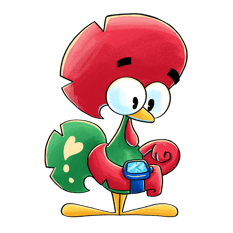
Here are the answers to the “What Time Is It?” challenge:
- The 3rd and 10th months of the year are marçoMarch and outubroOctober
- One hour after meio-dianoon, 12:00 p.m. is uma da tarde (1 p.m.), or treze horas (13h) 13:00, 1 p.m., 13 hours
- The day after Wednesday is quinta-feiraThursday
- If hojetoday is Monday, then amanhãtomorrow is Tuesday.
- The day before Thursday is quarta-feiraWednesday .
- The month after julho is agostoAugust .
- If ontemyesterday was Saturday, today is domingoSunday .
- Trick question! You did not arrive cedoearly or atrasado, atrasadalate (masc.,fem.) if you arrive a horason time .
- It’s 7:45 p.m. or É um quarto para as 8h00 da noiteIt's a quarter to 8:00 p.m.
- If someone says São sete e meia da manhãIt's 7:30 in the morning , you should probably eat o pequeno-almoçobreakfast next.
- If your order will be delivered daqui a dois diasin two days, two days from now and today is Monday, you can expect to receive it on quarta-feiraWednesday .
- If the film starts daqui a poucoshortly, in a moment, in a little while , you will only have time to get as pipocaspopcorn if you go rápidoquickly !
- If you left your house às oito da manhã and arrived at your destination três horasthree hours depoislater , you arrived at onze11 in the morning.
To learn more about dates and time in Portuguese, the Learning Notes (📄 icon) for these 3 units are completely free (the Lessons (? icon) are only available to Practice Portuguese Members):
Want a more difficult challenge? Try listening to the audio for this Shorty episode and see how much you can understand. 🙂
Math in Portuguese – May 6
How are your Portuguese matemáticamathematics skills? 😉 Here are the answers to the questions from this issue:
- quatro4 + nove9 = treze13
- quinze15 / cinco5 = três3
- dez10 x dez10 = cem100
- vinte20 + trinta30 = cinquenta50
- doze12 – três3 = nove9
- seis6 + onze11 = dezassete17
- There are vinte e quatro24 horashours in um dia1 day
- There are sessenta60 minutosminutes in uma horaone hour
- There are dez10 anos (years) in a décadadecade
- duzentos200 – oitenta e um81 = cento e dezanove119
- 760 – 2 = 758758
- Half of mil1000 is quinhentos500
- Your dinner cost 25,50€ and you paid 30€. You will receive 4,50€ in change.
- três mil trezentos e seis3306
- trinta e cinco mil oitocentos e sessenta35860
- um milhãoone million – um1 = novecentos e noventa e nove mil novecentos e noventa e nove999999
To learn more about numbers in Portuguese, the Learning Notes (📄 icon) for these 3 units are completely free (the Lessons (? icon) are only available to Practice Portuguese Members):
For a more difficult challenge, you can also listen to the free audio for these episodes that relate to Numbers.
Introducing Yourself in Portuguese – May 13
How Are You?
- Como está?How are you? (sing.,formal)
- Como estás?How are you? (sing.,inf.)
- Estou bemI'm well
- Tudo bem?How's it going?, What's up?, All is well?, How are you?
- Tudo bemI'm good, Everything's good
Who Are You?
- Como se chama?What's your name? (sing.,formal)
- Como te chamas?What's your name? (sing.,inf.)
- Chamo-me...My name is...
- Eu sou a MariaI am Maria
Pleasure to Meet You
- Prazer em conhecê-loPleasure to meet you (sing.,formal,speaking to male)
- Prazer em conhecê-laPleasure to meet you (sing.,formal,speaking to female)
- (Luckily, these can be shortened to Muito prazerVery nice to meet you or just Prazer!Pleasure! )
Where Are You From?
- És de onde?Where are you from? (sing.,inf.)
- É de onde?Where are you from? (sing.,formal)
- De onde são?Where are you(pl.) from?
- Nós somos da AlemanhaWe are from Germany
- Eu sou dos Estados UnidosI'm from the United States
More information here:
- European Portuguese Greetings
- Saying Goodbye in European Portuguese
- Introducing Yourself in Portuguese
- Videos
Conversation Breakdowns – May 20
- Por favorPlease or Se faz favorPlease
- ObrigadoThank you (male speaker) / ObrigadaThank you (female speaker)
- DesculpeSorry, Excuse me
- Desculpe, só falo um pouco de portuguêsSorry, I only speak a little Portuguese.
- Pode dizer outra vez? / Pode repetir?Can you repeat (that) ?
- Pode falar mais devagar?Can you speak more slowly?
- Diga?Come again?, What? Como?How?, What?
- Não percebi, desculpeI didn't understand, sorry
- Já percebiGot it, I understand now
Here are a few episodes in which you can hear conversation breakdowns and repairs:
3 Ways to Talk About the Future – May 27
Learn more and hear examples here: Talking About the Future in Portuguese
Listen to the informal future in this dialogue: Música Para os Ouvidos
Can You Say Você in Portugal? – June 3
Learn more and get the free flowchart here: Tu and Você in European Portuguese
The Word Já in European Portuguese – June 10
More examples of how to use já in a sentence:
- Já vou!I'll be right there!
- Volto já.I’ll be right back.
- Até já!See you soon!
- Já queSince, As, Now that
- Já chega!Enough!
- Agora é tarde demais, já perdi o autocarroNow it's too late, I've already missed the bus
- Tu já estiveste aliYou have already been there
- Já está escuro às 9h00 da noiteIt's already dark at 9:00 p.m.
- Elas já não se falamThey don't talk to each other anymore
- Nós já estamos no museuWe're already at the museum
- Os convidados já estão cáThe guests are already here
- Ela já não se importaShe doesn't care anymore
- Eu levo isso já, jáI will take that right away
- Lisboa já foi uma cidade calmaLisbon was once a calm city
- Já passa da meia-noiteIt's after midnight
- Já me sinto bemI feel okay now
- Já não dóiIt doesn't hurt anymore
- Já decidiram?Have you decided yet?
- Já pedimosWe already ordered
- Já podemos pedirWe can order now
- Eu já te dei instruçõesI already gave you instructions
- Já fizeste o teste?Have you done the test?
- Já sei um pouco de português!I already know a little bit of Portuguese!
- Já comeste?Have you already eaten?
- Já que a chuva parou, podemos ir passearNow that the rain has stopped, we can go for a walk
- Vou já tratar dissoI’ll take care of that in a moment.
- Desculpe, mas hoje já não temos pão.I’m sorry, but we have no more bread today.
- Já não oferecemos esse serviço.We no longer offer that service.
Vocabulary: Around the House – June 17
In a sala de estarthe living room , sit on o sofáthe sofa , watch a televisãotelevision , or grab um livroa book from a estantethe shelf, bookcase if you like lerto read . It’s best to find a seat near uma paredea wall with a a tomadapower socket , if you like to read under o candeeirothe lamp .
In a cozinhathe kitchen , grab some food from o frigoríficothe refrigerator and a despensathe pantry , and prepare it on a bancadathe countertop . Cook the food on o fogãothe stove , in o fornothe oven , or in t micro-ondasthe microwave . When it’s time to clean-up, put os pratosthe plates, dishes in a máquina de lavar loiçathe dishwasher , or wash them by hand in O lava-{loiça}the kitchen sink .
In a casa de banhobathroom , you can tomar um duchetake a shower , tomar banhobathe , or style your hair in front of o espelhothe mirror . After you use a sanitathe toilet , don’t forget to wash your hands at o lavatóriothe sink and dry them on a toalhathe towel .
In your quartoroom, bedroom , you can store a roupathe clothing in o roupeirothe wardrobe . To add some life to the room, put os cortinadoscurtains in as janelasthe windows , or some quadrospictures, frames, paintings or fotografiasphotographs on as paredesthe walls . You can sleep on a cama de casalthe double bed or a cama de solteirothe single bed . Some people use 1 almofadapillow , while others use 2. When the weather is colder, use o cobertorthe blanket or o edredãothe duvet . If it’s hot, maybe you’ll only need o lençol de cimathe top sheet . If you like it dark at night, don’t forget to turn off a luzthe light with o interruptorthe light switch and close os estoresthe blinds .
Learn more home-related vocabulary and phrases in the Units below. The Learning Notes are completely free (Lessons are available just for Members).
